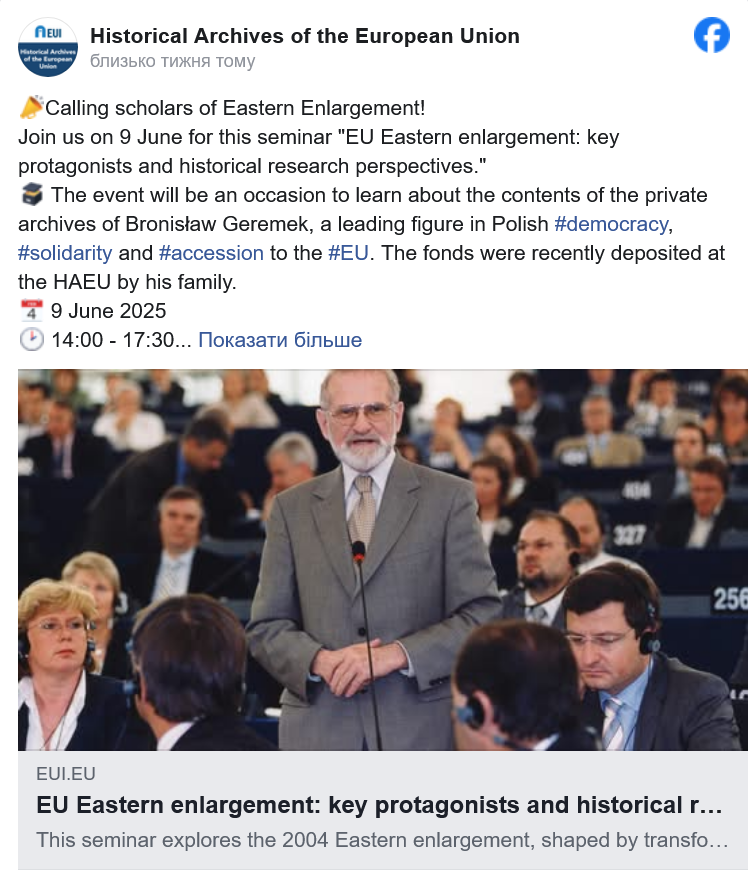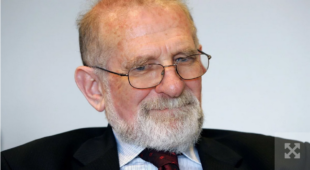Archive of former Polish FM deposited at EU Historical Archives
A vast collection of materials documenting the life and political career of Bronisław Geremek, a prominent Polish historian, anti-communist activist and foreign minister from 1997 to 2000, has been deposited at the Historical Archives of the European Union (HAEU). It is reported by Upmp.news with reference to “Polskie Radio”.
The archive was presented to the institution by members of Geremek’s family.
The inauguration of the Geremek Archive took place on Monday at the HAEU headquarters in Florence, coinciding with an international seminar on Geremek’s legacy.

Guests included his son, Marcin Geremek, and longtime friend Bernard Guetta, a former French member of the European Parliament, who reported on the historic 1980 Gdańsk shipyard strike for the daily Le Monde.
Born in 1932, Geremek was a leading figure in Poland’s pro-democracy movement and a key architect of the country’s path toward integration with European institutions.
From 1980 to 1989, he served as a chief adviser to Solidarity union leader Lech Wałęsa. After the collapse of communism in 1989, Geremek became a prominent advocate for Poland’s European aspirations.
In 1998, as foreign minister, he launched Poland’s EU accession negotiations.
His numerous honours included the Order of the White Eagle, Poland’s highest state distinction.
The Geremek Archive includes personal and political documents spanning the period from 1987 to 2008.
Among them are handwritten notes summing up negotiations with parliamentary leaders in November 1991, after which Geremek was tasked with forming a government—followed by his letter of resignation just four days later.
Other documents include a letter to NATO Secretary-General Javier Solana, in which Geremek, in his role as foreign minister, formally expressed Poland’s readiness to join NATO, and a report from his interrogation by communist-era secret police.
The collection also features extensive correspondence, including letters from President Aleksander Kwaśniewski; Poland’s last communist leader Gen. Wojciech Jaruzelski; film director Andrzej Wajda and his wife; stage designer Krystyna Zachwatowicz; journalist Jerzy Turowicz, editor-in-chie of Tygodnik Powszechny weekly; writer Wiktor Woroszylski; and Nobel Peace Prize laureate Elie Wiesel.
Established in 1983, the Historical Archives of the European Union is the official repository for documents of EU institutions and a research centre dedicated to the preservation and study of European integration.
(mk/gs)

